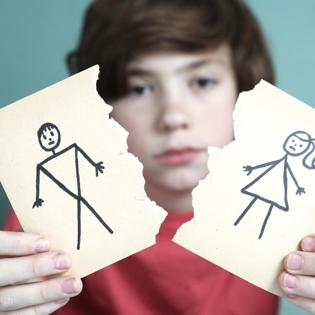Should Children be Involved During Divorce?
08 May 2015
At Fairway Divorce Solutions, we are constantly encouraged to obtain more education. That education helps us advance as the leading experts in our field. I recently attended the Child-Centred Continuum Seminar, and I believe that a lot of the topics mentioned in the seminar should be shared publicly. One of the questions that were brought to our attention was:
Should children have a voice when their parents decide to split up? And if so, how can we incorporate that in the decision making process?
Should Children Be Involved During Divorce?
 Lorri Yasenik, a Canadian child specialist, and Jon Graham, an Australian family mediator, are adamant that children should be seen and heard in the family law process. This debate is a controversial one but so important that we need to understand and find a solution. The UN Convention on the Rights of the Child is an agreement between nations (not all nations) to extend to and define the rights of children as human beings. Article 12 states:
Lorri Yasenik, a Canadian child specialist, and Jon Graham, an Australian family mediator, are adamant that children should be seen and heard in the family law process. This debate is a controversial one but so important that we need to understand and find a solution. The UN Convention on the Rights of the Child is an agreement between nations (not all nations) to extend to and define the rights of children as human beings. Article 12 states:
Parties shall assure to the child who is capable of forming his or her own views the right to express those views freely in all matters affecting the child, the views of the child being given due weight in accordance with the age and maturity of the child. For this purpose, the child shall in particular be provided the opportunity to be heard in any judicial and administrative proceedings affecting the child, either directly, or through a representative or an appropriate body, in a manner consistent with the procedural rules of national law.
Ms. Yasenik and Mr. Graham are pioneering a child continuum model that allows children to have a voice during divorce proceedings.
When Should Children be involved in the Divorce Mediation?
The question is, when should children be involved and how best to involve them? Yasenik and Graham reason that they should be involved from the beginning. Moreover, their voice should be shared with their parents at the moment both parents are ready and/or capable of hearing their children speak.
Or, the children can work directly with a Mediator. The mediator will facilitate the child’s expression of their needs, wants and concerns to the parents. Therefore, when the parents find the right Mediator for their divorce facilitation, the child can get involved.
These methods, however, do not operate effectively in every case. The more complex and the higher the conflict in a family, the more difficult things become. It is less likely that the child can directly communicate their needs, wants and concerns to the parents. The involvement of the child depends on the mediator. The mediator would be the one translating the children’s experiences, wants and needs. In addition, the more high conflict the case with the child involved, the more skillful the mediator will have to be.
How Children Can Communicate with Both Parents
Know that when a child should be involved has been defined, Ms. Yasenik and Mr. Graham go into detail on how the child can communicate effectively with both parents. Remember, the parents are often in emotional disarray as well, so the “how” is very important. The age and ability to communicate are important factors here. Depending on the factors, a number of approaches are possible for determining the needs of the child.
Ultimately, Yasenik and Graham explain that it is important to understand how the child is experiencing the separation and/or the new family structure. These approaches can be through drawings, letters, interviews etc.
There is a singular goal of Yasenik and Graham's method and that is to develop parenting agreements. Those agreements “Recognize that the child, for the full and harmonious development of his or her personality, should grow up in a family environment, in an atmosphere of happiness, love and understanding”.
Now that I have experienced this seminar, I do believe that the children should have a voice. It doesn’t mean they are the decision makers. Parents should be aware how their own decision and behaviours impact the children. As well, they should know how it affects the children’s ability to develop into the best human beings they are capable of being.


